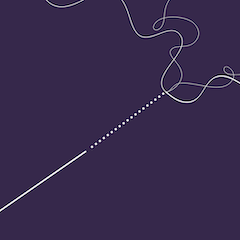
Chinese medicine looks to the perspectives of the past to understand the unfolding present. And for sure, there are threads of connection and perspective that come down to us through the curious tides of history. At the same time, there is this unique moment.
What we hold, what we discover, these are yin yang aspects of how to make sense of a medicine patinated with history and lore.
In this conversation with Volker Scheid we discuss continuity and change in Chinese medicine. And the starting point is not the deconstructivism so popular in our present moment, but rather the inquiry of Chinese poets in the 12th century.
Listen into this discussion on the tidal flows of continuity and change.
In my clinical practice I avoid following protocols, but try to understand the dynamic underlying any particular constellation of symptoms and signs. One of the most important clues tends to come from those symptoms and signs that appear to contradict each other, or pull in different directions, such as the simultaneous presence of dryness and dampness, or a slow pulse in a patient presenting with prominent heat signs.
The other clue comes from what patients say. Somewhere within all the information they give, they point us to where we really need to go.

Volker Scheid
I grew up in rural Germany in a family engaged in the cultivation of medicinal herbs. Following an apprenticeship as a gardener I moved to England to study phytotherapy (Western herbal medicine) and Chinese medicine. Further studies led me to China, where I completed three years of postgraduate training at Beijing and Shanghai Universities of Chinese Medicine and also apprenticed with several nationally renowned physicians.
My clinical studies led to a deepening academic involvement with East Asian medicines, which I pursued at the University of Cambridge, the School of African and Oriental Studies (London), and the University of Westminster, where I was Professor of East Asian Medicines and Director of EASTmedicine (East Asian Sciences and Traditions in Medicine). I have published over thirty papers in peer-reviewed journals, as well as two influential monographs: Chinese Medicine in Contemporary China (Duke UP 2002) and Currents of Tradition in Chinese Medicine, 1624-2000 (Eastland Press 2007). I am the lead author of Formulas & Strategies, 2nd ed. (Eastland Press 2009)
Throughout my academic career I continued to practice, and by now have almost forty years of clinical experience. As a teacher, my aim is to guide students to become rounded practitioners by learning to work effectively with different tools and perspectives. I refer to this as meta-practice.
Visit Volker’s webpage: www.volkerscheid.net which has links to many of his articles and publications.
And join him for his Advanced Chinese Medicine course on Developing Clinical Mastery Through Meta-Practice.